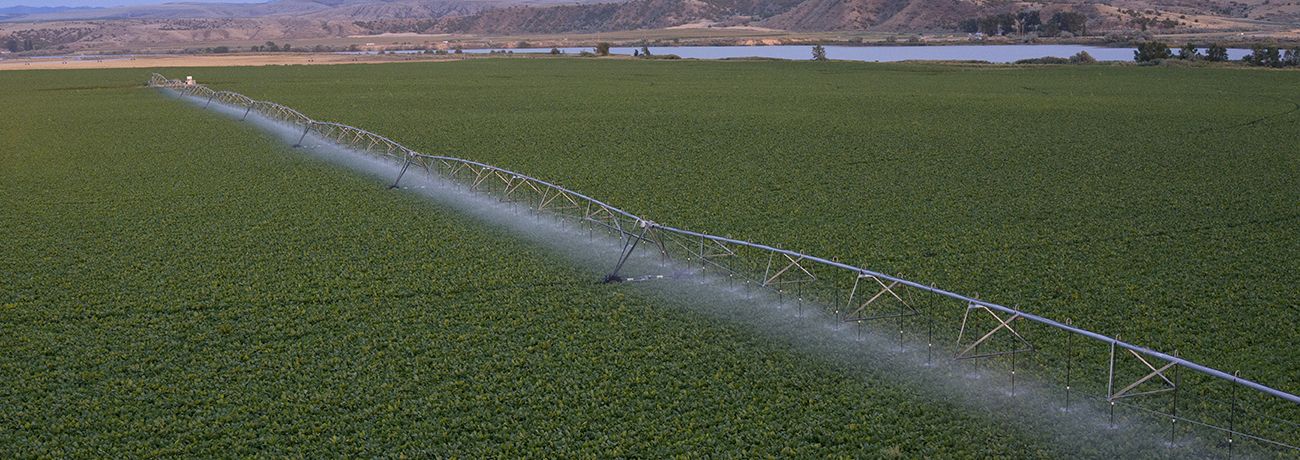Zimmatic Blog
The Most Important Irrigation Decisions Can Come at End of the Season
Aug 10, 2021

Knowing when to quit irrigating for the season can be a quandary. Throw drought conditions into the mix and the decision becomes even more complex. Stopping too soon can stress the crop and lower yields. Not stopping soon enough adds unnecessary expense, reduces profits and may leave the field wetter than desired when it’s time to bring the crop in.
Unfortunately, there is no hard and fast date to determine when to make the last pass. But growers should time the event based on a number of factors: predicted crop maturity date, predicted water use by crop, remaining available water in the soil and anticipated rainfall before crop maturity. For growers in the drought zone, it may be even more difficult to figure out the stop point because dry conditions have pushed them to irrigate more heavily and later than in past years, causing them to wonder when the irrigation season will end.
Growers can continue to rely on visual inspections and complex calculations to determine water needs and use, or they can use FieldNET™ Advisor™ from Lindsay. This award-winning, revolutionary technology provides simple, science-based irrigation recommendations from field data, cloud-computing capabilities, machine learning and more than 40 years of crop and irrigation research. With FieldNET Advisor, growers know how much water to apply and when for every zone.
“Your goal should be to provide enough water in the crop’s root zone to carry the crop to maturity and reduce or eliminate stress — without leaving excess moisture in the soil profile. FieldNET Advisor can help you reach that goal and take the guesswork out of irrigation management and scheduling,” says Michelle Marcuzzo, Software Product Manager at Lindsay. “It delivers continuously updated recommendations to help you avoid water stress throughout the season, including information that can help you use even less water at the end of the growing season.”
FieldNET Advisor provides a graphical view of the projected irrigation schedule, helping growers confirm their decision to reduce or suspend irrigations at the end of the season. The chart displays the season-to-date soil water depletion and irrigation history. It also shows the forecasted soil water depletion and irrigation recommendations through the remainder of the growing season based on the field-specific, 15-day hourly weather forecast and field-specific historical norms beyond the 15-day forecast.
Using FieldNET Advisor’s unique forecasted yield loss, growers have the data they need to decide when it’s economically optimal to stop irrigating. “The forecasted yield loss is an estimate of the percentage of the crop’s yield potential that will be lost if no additional irrigation is applied through the remainder of the season,” Marcuzzo says. “With this information, you may decide to reduce the final irrigation amount or stop irrigating altogether to let the crop further deplete the available water — particularly if the yield loss is minimal or if the value of the projected yield loss, without additional irrigation, is less than the cost of applied irrigation.”
With FieldNET Advisor, growers can be confident in their decisions because they’re based on recognized practices for irrigation scheduling. By deciding when it’s both agronomically and economically optimal to stop irrigating, growers protect their crops and maximize ROI.
For more information about FieldNET Advisor, talk to your local Zimmatic dealer or learn more here.